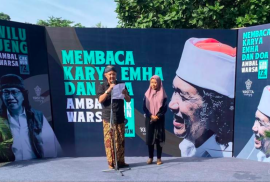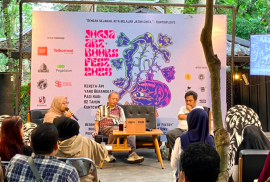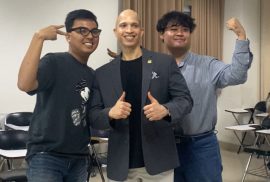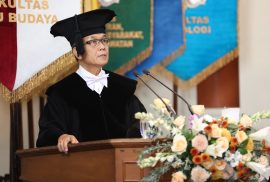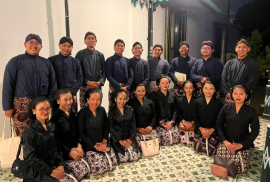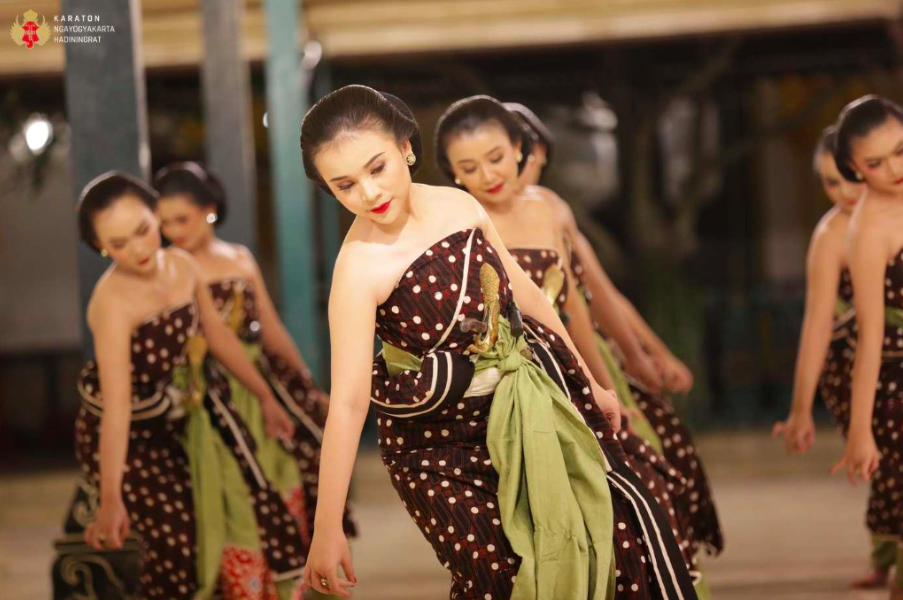Yogyakarta, May 25, 2025 — A solemn and heartfelt atmosphere filled the event “Membaca Karya Emha dan Doa Ambal Warsa Cak Nun 72 Tahun” held in celebration of the 72nd birthday of cultural and spiritual figure Emha Ainun Nadjib, widely known as Cak Nun. Hosted at the West Office Hallway of Jogja Expo Center (JEC) from 6:00 to 9:00 AM, the event drew participants from various backgrounds—academics, cultural practitioners, and the general public.
More than a tribute, the gathering served as a spiritual and intellectual forum where participants shared readings of Cak Nun’s works, offered prayers, and expressed hopes for his continued health and contribution to Indonesian culture and Islamic thought. The initiative was led by Sigit Sugito, Head of Koperasi Seniman Yogyakarta (KOSETA).
In addition to artists and cultural figures, several academics were in attendance, including Professor Aprinus Salam, Head of the Master’s Program in Literature, who read aloud one of Cak Nun’s poems. His presence was made even more meaningful as he was joined by his wife, Pristi Salam, whose melodious performance of a lyrical piece deeply moved the audience.
Also present was senior artist Yati Pesek, a well-known comedian and legendary ketoprak performer. She shared her admiration for Cak Nun’s ability to preserve local culture while remaining a devout follower of Islamic teachings. “One day I met Kyai Maimun Zubair. In his sermon, he said that local culture should go hand-in-hand with Islam. I believe Cak Nun has embodied that in his life. He remains devoted to Prophet Muhammad while upholding Javanese cultural values. That’s what I admire most about him,” she remarked.
Cultural figure Yani Saptohoedojo also highlighted the reflective and critical nature of Cak Nun’s literary works. “Sometimes his work contains criticism, but it’s always conveyed gently,” he noted, underscoring the poet’s subtle and humane approach to addressing social issues.
The event left a lasting impression on all who attended. It served as both a celebration and a reflection on the life and legacy of Cak Nun. On his 72nd birthday, attendees extended heartfelt prayers for his continued health and productivity, hoping he will persist in creating meaningful contributions to culture, spirituality, and society.
[Public Relation Magister of Literature, Marsya Kamila]

